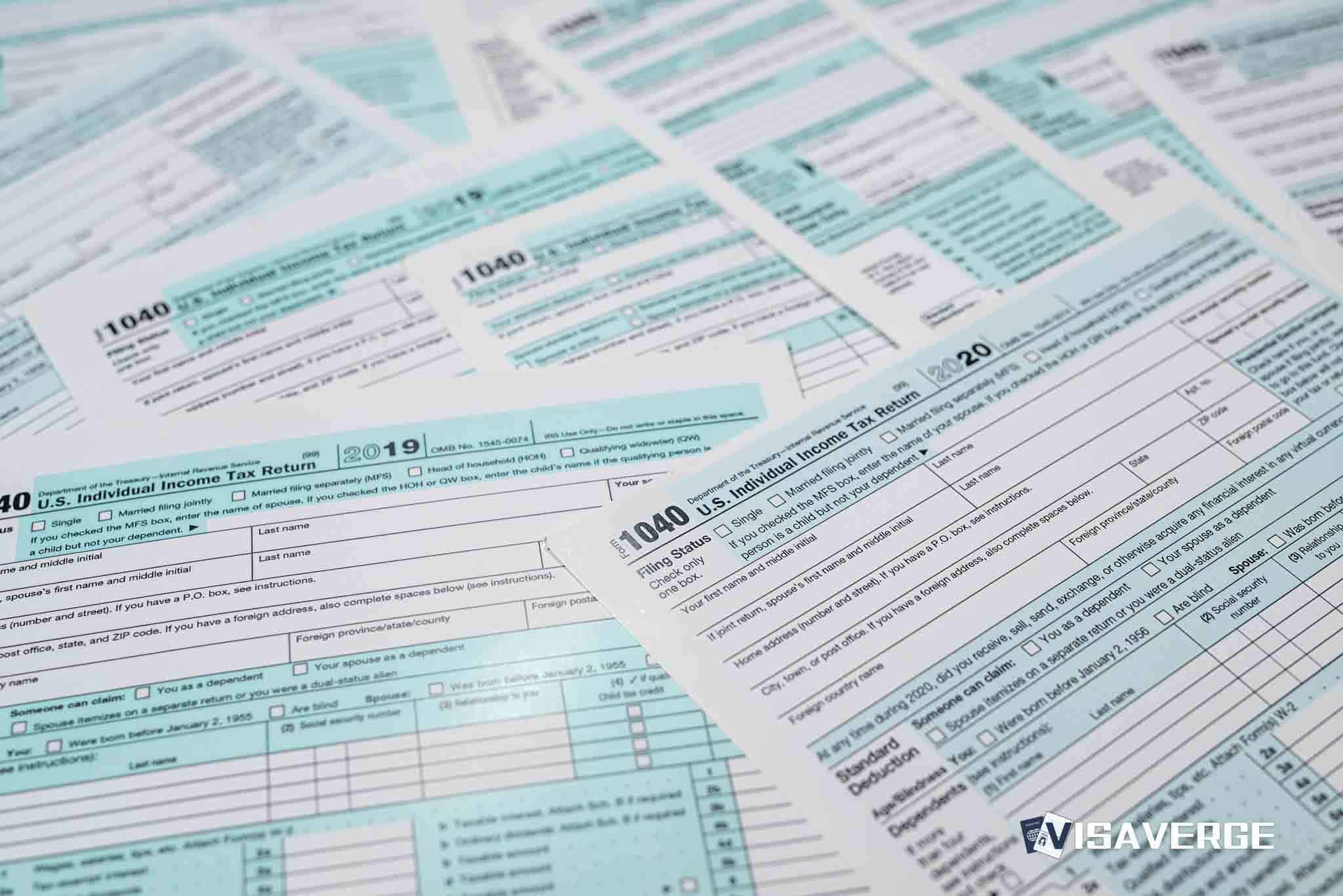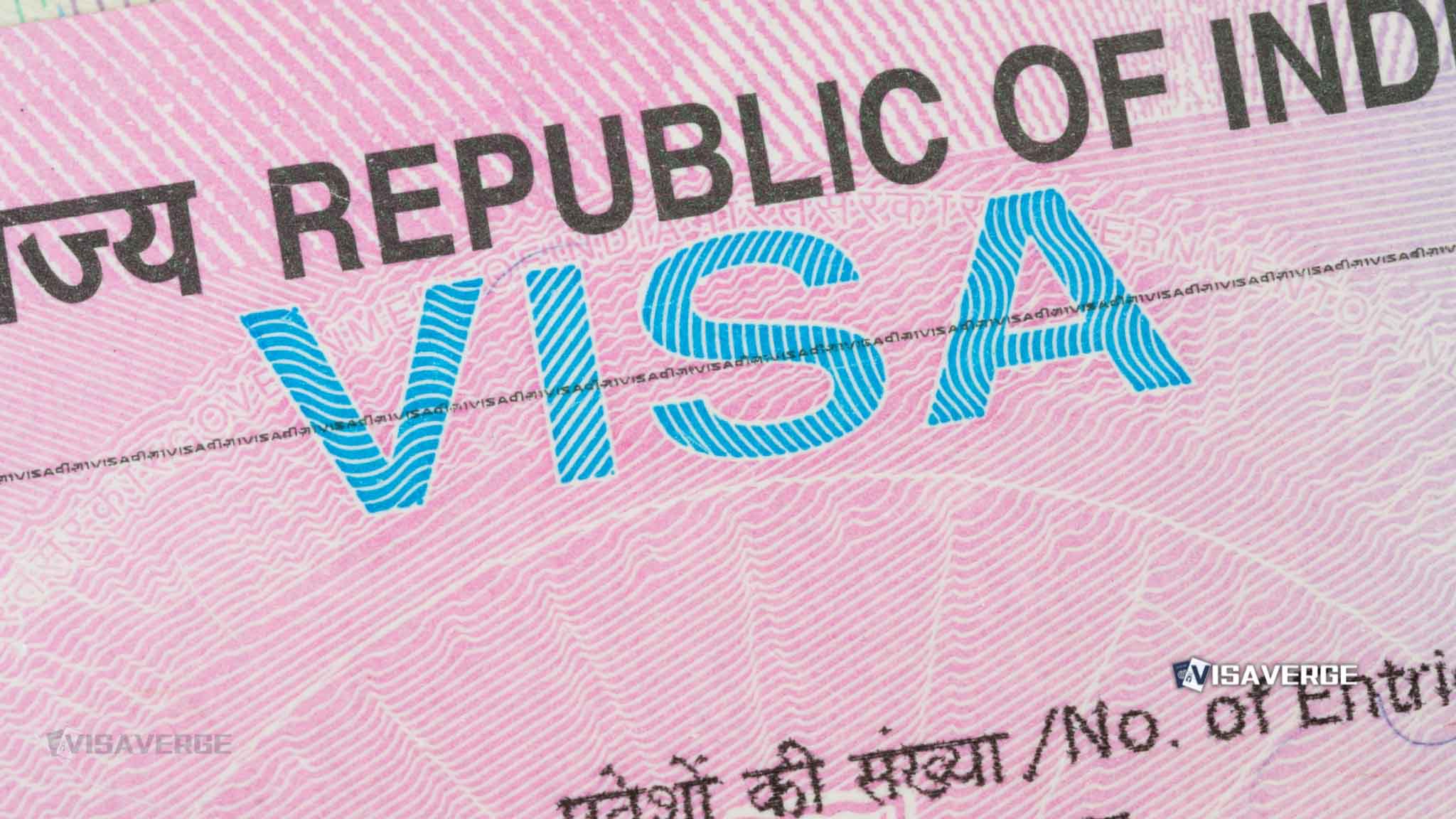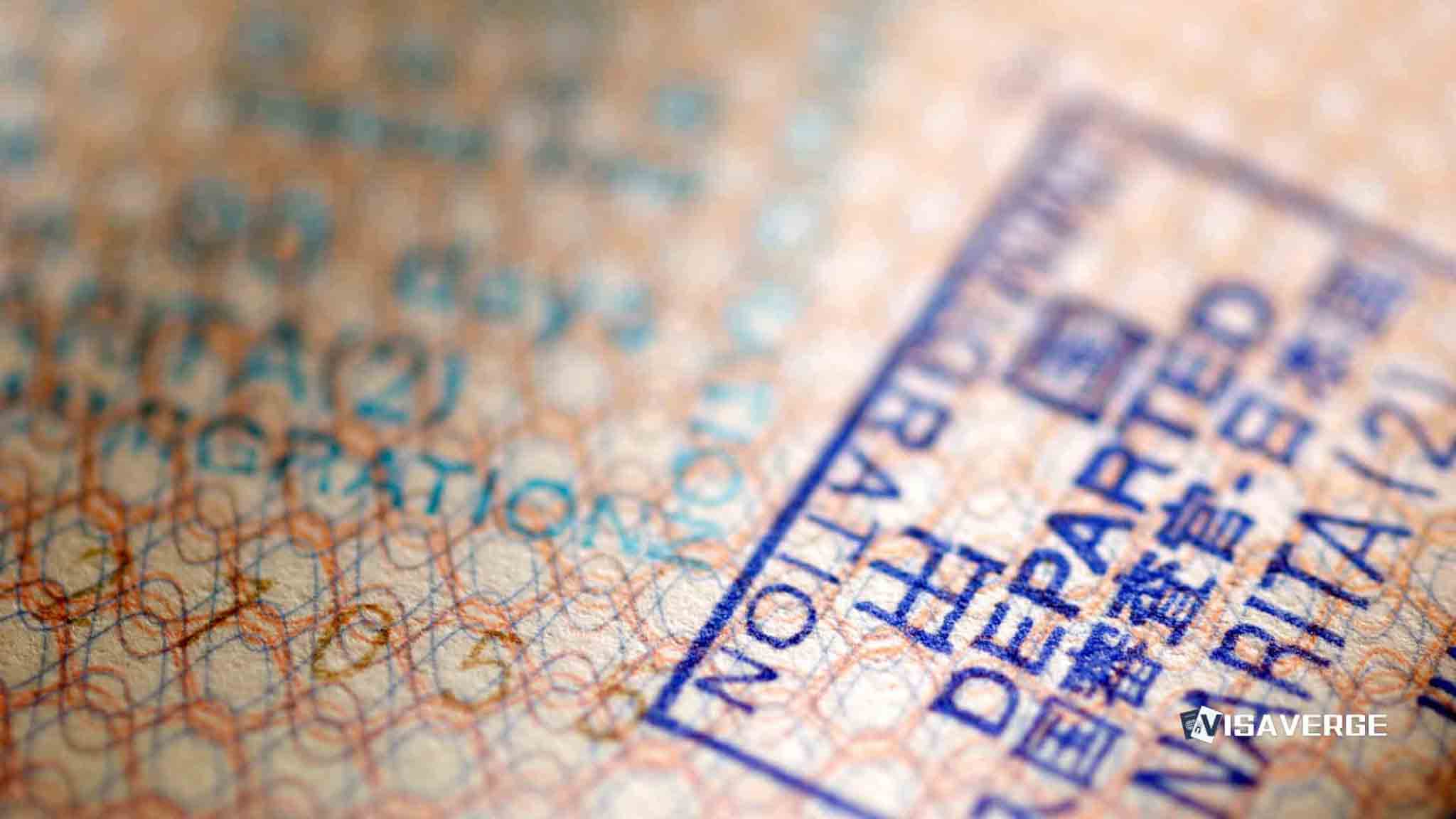Key Takeaways
• The One Big Beautiful Bill Act introduces a 1% remittance tax on money sent abroad starting July 2025.
• Banks and transfer services must report sender’s citizenship, tax residency, and remittance details to the IRS.
• Immigrants and H-1B holders face increased IRS audits, ICE enforcement, and higher costs for sending remittances.
As of early July 2025, the United States 🇺🇸 Congress has passed the One Big Beautiful Bill Act (OBBBA 2025), a sweeping piece of legislation that brings major changes to tax law, immigration enforcement, and the way financial transactions—especially remittances sent abroad—are handled. President Trump is expected to sign the bill into law at any moment, following decisive votes in both the Senate and the House. This new law is set to impact millions of people, including undocumented immigrants and H-1B holders, by introducing a remittance tax and new reporting requirements for money sent overseas.
What Is the One Big Beautiful Bill Act and Why Does It Matter?

The One Big Beautiful Bill Act is a broad tax and budget law that covers fiscal years 2025 through 2034. It includes permanent tax cuts, higher estate and gift tax exclusions, and, most importantly for immigrants, new rules about sending money abroad. The law aims to raise federal revenue and tighten immigration enforcement at the same time.
One of the most talked-about parts of the bill is the 1% excise tax on cash remittances sent outside the United States 🇺🇸. This means that anyone—U.S. citizens, green card holders, undocumented immigrants, or H-1B visa holders—who sends money overseas will have to pay this tax. The government expects this tax to bring in about $10 billion in revenue.
But the tax is only part of the story. To make sure people pay the tax, the law will require banks, money transfer companies, and other financial institutions to collect and report detailed information about each remittance. This includes the sender’s citizenship and tax residency status, which will be sent to the Internal Revenue Service (IRS). These new rules are expected to change how millions of people handle their money and could lead to more government scrutiny of immigrants’ financial activities.
How Will the Remittance Tax and Reporting Work?
The remittance tax is simple in theory: if you send money from the United States 🇺🇸 to another country, you pay a 1% tax on the amount sent. But the way the government will enforce this tax is more complicated.
Key Features of the Remittance Tax and Reporting
- Who Pays: Everyone who sends money abroad, including U.S. citizens, green card holders, undocumented immigrants, and H-1B holders.
- How Much: A 1% tax on the total amount of each cash remittance.
- Who Collects: Banks, money transfer services (like Western Union or MoneyGram), and other financial institutions.
- What Gets Reported: The sender’s name, citizenship, tax residency status, and the amount sent.
- Where Does the Data Go: The IRS will receive all this information for tax enforcement.
To collect this data, the IRS is expected to update forms like Form W-9, which is used to collect taxpayer information. Transfer providers will need to ask for more details from anyone sending money overseas, including proof of citizenship or visa status.
Why Are Immigrants and H-1B Holders Worried?
The new rules have raised serious concerns among immigrants, especially undocumented immigrants and H-1B holders. Here’s why:
Increased IRS Scrutiny
With transfer providers now required to report detailed remittance data, the IRS will have a clearer picture of who is sending money abroad and how much. This could lead to:
- More audits or investigations for people who regularly send large sums overseas.
- Questions about immigration status if the data shows someone is not a U.S. citizen or permanent resident.
- Potential tax penalties for people who do not report their income correctly or who are found to owe taxes on money sent abroad.
Risk of ICE Enforcement
The One Big Beautiful Bill Act also includes a massive boost in funding for immigration enforcement. The law provides money to:
- Hire 10,000 new ICE agents
- Increase detention capacity by 80,000 beds
- Fully fund the ICE 287(g) program, which lets local police help federal immigration authorities
While the remittance data is mainly collected for tax purposes, the increased sharing of information and the larger enforcement budget could make it easier for Immigration and Customs Enforcement (ICE) to find and investigate people who may be in the country without legal status. If the IRS data shows suspicious activity or possible immigration violations, it could be shared with ICE, leading to more enforcement actions.
Practical Implications for Everyday People
For undocumented immigrants and H-1B holders, these changes could mean:
- More paperwork: Transfer providers will ask for more documents to prove who you are and your immigration status.
- Higher costs: The 1% tax adds up, especially for people who send money home regularly to support family.
- Greater risk: Sending money could now expose you to both tax and immigration enforcement if your information is flagged.
What Do Experts and Stakeholders Say?
The new law has sparked debate among experts, advocacy groups, and financial institutions.
Supporters’ View
Supporters of the remittance tax, like Lora Ries from The Heritage Foundation, argue that making it more expensive to send money home will discourage illegal immigration. They believe that if undocumented immigrants have to pay more to send money abroad, fewer people will want to come or stay in the United States 🇺🇸 without legal status. The tax is also seen as a way to raise money for the government without raising income taxes.
Concerns from Advocacy Groups
Immigration advocates and some lawmakers are worried that the new reporting rules and extra enforcement funding will hurt immigrant communities. They point out that:
- Lawful visa holders, like H-1B workers, could get caught up in enforcement if there are mistakes in the data or if their transactions are flagged by accident.
- Undocumented immigrants may avoid using formal financial services out of fear, leading to more use of risky, informal channels to send money.
- Financial institutions will face new challenges in verifying citizenship and tax residency, which could slow down transactions or lead to errors.
Financial Institutions’ Perspective
Banks and money transfer companies will have to spend more time and money to comply with the new rules. They will need to:
- Update their systems to collect and report more information
- Train staff to handle new forms and requirements
- Deal with customers who may not have all the required documents
These changes could make it harder for everyone—not just immigrants—to send money abroad quickly and easily.
Background: Why Is the Government Doing This?
The One Big Beautiful Bill Act is part of a larger effort to raise money for the federal government and strengthen immigration enforcement. The remittance tax is expected to bring in about $10 billion, which will help pay for other parts of the law, including tax cuts and more border security.
The reporting requirements are designed to make sure everyone pays the tax and to prevent people from hiding money or avoiding taxes by sending it overseas. By collecting more information about who is sending money and where it’s going, the government hopes to catch tax cheats and people who may be breaking immigration laws.
How Will the New Rules Be Put Into Practice?
The law is expected to be signed by President Trump as early as July 4, 2025. Once it becomes law, several things will happen:
IRS Implementation
- The IRS will update forms like Form W-9 to include new questions about citizenship and tax residency.
- The IRS will issue guidance to banks and money transfer companies about how to collect and report the new information.
- People who send money abroad will need to provide more details when making transfers.
Transfer Providers’ Role
- Banks and money transfer services will need to update their systems to collect the required data.
- They will have to train staff to handle the new rules and help customers understand what documents are needed.
- Providers may face penalties if they do not collect or report the information correctly.
ICE Enforcement Expansion
- ICE will use its new funding to hire more agents and expand detention facilities.
- The 287(g) program will allow more local police departments to work with ICE, increasing the reach of immigration enforcement.
- Financial data from remittance reports could be used to identify people for investigation or enforcement actions.
What Does This Mean for H-1B Holders?
H-1B holders are skilled workers who are legally allowed to work in the United States 🇺🇸 on a temporary basis. Many H-1B holders send money home to support family or pay for expenses in their home countries. Under the new law:
- H-1B holders will have to pay the 1% remittance tax, just like everyone else.
- They will need to provide proof of their visa status and tax residency when sending money.
- If there are mistakes in the data or if their transactions are flagged, they could face extra questions from the IRS or even ICE, especially if there are concerns about their visa status or tax compliance.
What About Undocumented Immigrants?
Undocumented immigrants are likely to be the most affected by the new rules. Many rely on sending money home to support family members. With the new law:
- They will have to provide more information when sending money, which could expose their immigration status.
- They may face higher risks of being reported to the IRS or ICE if their transactions are flagged.
- Some may stop using formal money transfer services and turn to informal channels, which can be more expensive and less safe.
What Should Immigrants and H-1B Holders Do Now?
If you are an immigrant or H-1B holder who sends money abroad, here are some steps to consider:
- Stay informed: Watch for updates from the IRS and your money transfer provider about new requirements.
- Gather documents: Make sure you have proof of your citizenship, visa status, and tax residency.
- Ask questions: If you are unsure about the new rules, talk to your bank or a trusted immigration advisor.
- Be careful: Make sure all your tax filings are up to date and accurate to avoid extra scrutiny.
For the latest official information on tax forms and remittance tax rules, visit the IRS official website.
Looking Ahead: What’s Next?
The One Big Beautiful Bill Act is expected to become law very soon. Over the next few months, the IRS will issue more detailed rules, and banks and money transfer companies will update their systems. ICE will begin hiring new agents and expanding its enforcement programs.
According to analysis by VisaVerge.com, these changes will likely lead to more government oversight of financial transactions, especially for immigrants and H-1B holders. The combination of new taxes, reporting requirements, and increased enforcement funding means that anyone sending money abroad from the United States 🇺🇸 should be prepared for more questions and possible risks.
Key Takeaways
- The One Big Beautiful Bill Act introduces a 1% remittance tax on money sent abroad from the United States 🇺🇸.
- Transfer providers must collect and report detailed information about senders, including citizenship and tax residency, to the IRS.
- Undocumented immigrants and H-1B holders face higher risks of IRS and ICE scrutiny due to the new rules.
- The law also provides major funding increases for immigration enforcement, including more ICE agents and expanded detention capacity.
- Immigrants should stay informed, keep their documents ready, and make sure their tax filings are accurate.
As the law takes effect, it will be important for everyone affected—immigrants, H-1B holders, and financial institutions—to understand their rights and responsibilities. For ongoing updates, check the IRS official website and trusted immigration news sources.
By staying informed and prepared, you can better protect yourself and your family as these new rules come into force.
Learn Today
One Big Beautiful Bill Act → A 2025 U.S. law introducing tax and immigration changes including remittance taxes and reporting rules.
Remittance Tax → A 1% excise tax on money sent abroad from the United States under OBBBA 2025.
H-1B Holders → Foreign skilled workers legally employed in the U.S. on temporary H-1B visas subject to new remittance rules.
IRS → Internal Revenue Service; U.S. government agency responsible for tax collection and enforcement.
ICE → Immigration and Customs Enforcement; agency enforcing immigration laws and expanded under the new law.
This Article in a Nutshell
Passed in July 2025, the One Big Beautiful Bill Act imposes a 1% tax on remittances and requires detailed IRS reporting. Immigrants and H-1B holders face greater scrutiny and enforcement risks, changing how money is sent overseas and impacting millions across the U.S.
— By VisaVerge.com






